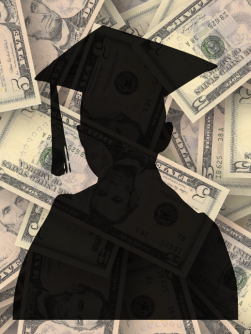Tuition was postponed for College of Southern Nevada students affected by the recent partial government shutdown.
The U.S. federal government shutdown Dec. 22 till Jan. 25 was the longest shutdown in the country’s history. The shutdown was solely based on President Donald Trump’s demand for funding to build the wall at the Southern border.
Unfortunately approximately 800,000 federal employees were affected: working without pay.
In a letter dated Jan. 13, 2019 from Gov. Steve Sisolak’s (D-Nev.) to the Nevada System of Higher Education, it stated, “Here in Nevada we have more than 3,000 federal workers potentially impacted and many of these individuals may be attending or have children attending our institutions with the Nevada System of Higher Education. With the start of 2019’s spring semester, students are enrolled and preparing to attend classes but may not know if they will be able to attend because they cannot pay their fees as a result of the shutdown.”
Helen Kalla, communications director for Gov. Sisolak, said, “Gov. Sisolak believes that Nevada students shouldn’t have to suffer because of gridlock and partisan games in Washington. As a member of the Board of Regents for 10 years Gov. Sisolak was a champion for Nevada’s college students and fought for access to affordable higher education and he will continue to do so as governor.”
Sisolak convinced NSHE to postpone tuition for those who work for the federal government.
Kalla added, “NSHE was a helpful partner in ensuring Nevadan’s access to higher education wouldn’t suffer because of the reckless federal shutdown.”
CSN social sciences Instructor Francis Carleton commented on the shutdown. “President Trump decided at the last minute to demand $5.7 billion for his wall with Mexico. While Trump did have the support of Republicans in Congress, Democratic opposition was, I believe, unanimous. And since Dems now control the House and they were determined to deny Trump money for his wall… they were able to resist Trump’s demands.”
“The shutdown did not help Trump achieve his goals at all,” Carleton said. “So probably it was not worth it by anyone’s measure. Plus it damaged the economy and put hundreds of thousands of federal workers in financial peril.”
According to CSN’s Assistant Director of Public and Media Relations Richard Lake, “[CSN] had one student affected that we are aware of. This student’s bill was deferred until Feb. 26 and there will be no late charges.”
Jason Hill, another CSN student affected by the shutdown, served in the military for seven years and was medically discharged.
Hill did not receive his funds on time to pay his tuition. “The school portion of my GI Bill was affected. It usually takes a couple weeks for tuition to kick in at the start of the semester but I haven’t received any yet. We’re supposed to get the money by the first [of March].”
Hill was upset about the delay in receiving his funds but he supported the president in this shutdown.





